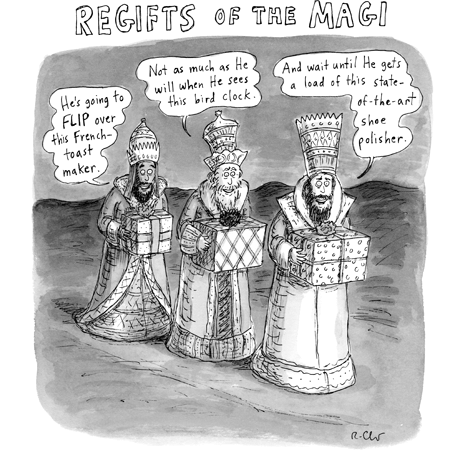
1. An uncommonly insightful piece by John Dickerson appeared in The NY Times about “The Decline of Evangelical America.” Writing as an evangelical himself, Dickerson recites some jarring statistics before launching into a sympathetic and genuinely hopeful conclusion, ht SZ:
In 2007, the Institute for Jewish and Community Research, in a survey of 1,300 college professors, found that 3 percent held “unfavorable feelings” toward Jews, 22 percent toward Muslims and 53 percent toward evangelical Christians…
The core evangelical belief is that love and forgiveness are freely available to all who trust in Jesus Christ. This is the “good news” from which the evangelical name originates… Instead of offering hope, many evangelicals have claimed the role of moral gatekeeper, judge and jury. If we continue in that posture, we will continue to invite opposition and obscure the “good news” we are called to proclaim…
The deterioration and disarray of the movement is a source of hope: hope that churches will stop angling for human power and start proclaiming the power of Christ… As the English writer G. K. Chesterton put it, “Christianity has died many times and risen again; for it had a God who knew the way out of the grave.”
2. Look down! Yours truly was flattered to be interviewed earlier this week by Michael Horton of White Horse Inn on the subject of “Law, Gospel and Les Miserables.” They’ve been gracious enough to make the recording available on their (excellent) site. And the poem I mention is Hugo’s stunning “Written Beneath a Crucifix,” which he wrote in 1847 after the death of his daughter:
You who weep, come to this God, for he weeps.
You who suffer, come to him, for he cures.
You who tremble, come to him, for he smiles.
You who pass, come to him, for he remains.
3. Next, there’s the remarkable “Let My Tebow Go” by Stephen Marche, published in The NY Times Magazine:
Christians famously have the problem of pain: how can a benevolent and omnipotent god permit evil to exist? But atheists like myself have our own paradox to contend with: the problem of joy. Why do randomly good things happen? In Graham Greene’s “The Power and the Glory,” a priest gives the explicit defense of their reality to his Red Shirt captor: “Can’t you see the doctors round the dead man? He isn’t breathing anymore, his pulse has stopped, his heart’s not beating: he’s dead. Then somebody gives him back his life, and they all — what’s the expression? — reserve their opinion. They won’t say it’s a miracle, because that’s a word they don’t like.”
Tebow asks a profound question of his sport: Can a football player be different from his results?…Football is the most rational of sports, grounded in higher-level thinking, both strategic and tactical. Tebow was making a mockery of that rationality.
Tim Tebow is a prophet of happy absurdity. He is a moment of inexplicable joy… This is an atheist’s plea: Let Tim Tebow play.
4. David Mills rewrote his stunning reflection “The Anxious Parent” for the new issue of First Things, and it’s a must-read. The earlier version can be found here, but the new one is only available to subscribers. A couple of worthy excerpts, ht VH:
I didn’t pay much attention when John Paul II was elected, nor to his first sermon as pope, but some years later when I first came across his declaration “Be not afraid,” I thought it a pretty lame declaration with which to start one’s work. It seemed to me a platitude like “brush between meals” and “eat more fiber,” not a call to arms. Yeah, sure, whatever, I thought. Biblical slogans are a dime a dozen.
But I was still young then and had not seen how many ways the world has to make you afraid. Just have children and a world of imagined and unimaginable horrors will present itself to you, and minor inconveniences or hurts will appear to be losses from which your child will never recover, and every decision and choice one that can lead as easily to misery as to success. Oddly enough, affluence does not necessarily make you feel more secure, but usually just multiplies the reasons you can find to be afraid and increases the triviality of the results you fear.
I had not seen how hopes quickly become fears, and how the deepest hopes become the worst fears, and how the fallen heart can manufacture reasons to be afraid even from blessings…
5. Speaking of self-defeating tendencies, Psychology Today posted a handy and amusing list of “Ten Ways Your Brain Is Smacking You Around.” The amusing part comes after each of the “What To Do” captions, ht JD.
[youtube=www.youtube.com/watch?v=hnCQIPCOLHg&w=600]
6. In film, Noah Berlatasky got pretty heated on The Atlantic about “Peter Jackson’s Violent Betrayal of Tolkien”. His main concern doesn’t have to do with millimeters or pacing but with the virtue that lies at the center of The Hobbit, i.e. mercy:
At the end of Rings, it is ultimately Gollum who, inadvertently, destroys the ring and saves Middle Earth. Mercy is ultimately salvation, and Bilbo’s decision not to use violence is at the heart of the quasi-Christian moral order of Tolkien’s world… [but] the rest of his film undercuts it—and, indeed, almost parodies it. The scene where Bilbo spares Gollum in the movie comes immediately after an extended, jovially bloody battle between dwarves and goblins, larded with visual jokes involving decapitation, disembowelment, and baddies crushed by rolling rocks. The sequence is more like a body-count video game than like anything in the sedate novel, where battles are confused and brief and frightening, rather than exuberant eye-candy ballet.
Having not seen it yet, I cannot confirm or deny, but judging from the many reviews Nick Olson helpfully compiled on Patheos, it sounds like Berlatasky is onto something. Tim Burton too:
[youtube=http://www.youtube.com/watch?v=7SxTyvOixJA&w=600]
7. In case you needed a reason or three to like Judd Apatow even more than you already do, The AV Club posted an interview with the writer/director/patron/all-around good guy this week, in conjunction with the release of Apatow’s new film, This Is 40. His explanation of the thematic content of film (below) is refreshingly un-Hollywood, but don’t miss his (gracious) comments toward the end about using his reputation to shield other, more vulnerable performers. There’s a refreshing lack of ego:
And [This is 40 is] not so much about that specific age; it’s about a time in the middle of your life where you take stock of how you’re doing, and you try to figure out how you could do it better. And some people really obsess on making things better, and usually that leads to everything falling apart, and I thought that type of meltdown would also be amusing to watch.
…it’s about what is probably just an old Buddhist idea, which is the more you want things, the more pain you have. [Laughs.] It’s very hard to let go of wanting, even if it’s wanting to be happy, or wanting order, wanting to have a perfect marriage, wanting your kids to have no pain. All of these desires make you crazy, and I find that how you get crazy is endlessly amusing. But I, like everybody else, make those mistakes every second of every day.
The movie is an existential crisis. Everything I do is an existential crisis.
8. Humor-wise there’s the laugh-or-you’ll-cry “Dysfunctional Family Bingo” in The Wall Street Journal and The Onion’s hilarious, brilliant “Study Finds Millennial Generation Stays On Phone With Parents Throughout Entire Day”:
Drawing on extensive field observation, the study found that the vast majority of the nation’s 80 million millennials—Americans born between 1982 and 2000—insist on maintaining unbroken verbal contact with their mothers and fathers from the time they wake up until the time they go to bed, requiring as many as 18 hours of reassurance and validation via telephone each day.
“In contrast to previous generations, millennials are using technology to demand and receive a nearly endless stream of parental affirmations,” said behavioral psychologist George Wright, the study’s lead author. “Like helpless infants, members of this demographic group instinctively seek out the security of their parents the moment they encounter even the slightest hint of unhappiness, and in most cases cannot fall asleep without the soothing sound of their mother or father’s voice flowing directly into their ears.”
And with that, off we go a-waffling! There will be a handful of posts going up next week, but we won’t be back to full strength until January. So from all of us here at Mbird, we wish you the happiest and healthiest of Christmases! Here’s your present:
[youtube=https://www.youtube.com/watch?v=OYV_PA0WHAw&w=600]

COMMENTS
2 responses to “Another Year Ends: Evangelical Decline, more Les Mis, Tebow Absurdity, Anxious Parents, The Hobbit, Apatow in Crisis, Millenial Affirmations and A Muppet Family Christmas”
Leave a Reply















A great interview with Mike Horton and to his last question concerning audiences, including church people, being in touch with Gospel analogies…that is the powerful ministry of Mockingbird. Thanks to the Mbird team. You are much appreciated.
David Zahl you rock! My only copy of muppet family Christmas was on VHS. We used to watch it every Christmas way back in the day of vcrs. This is the absolute best Christmas present I have ever gotten! Watch out for the icy patch, I know what I will be doing all day! Thank you, thank you, thank you.